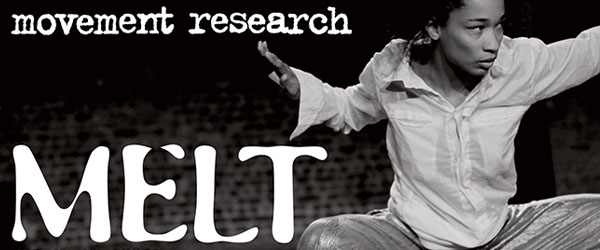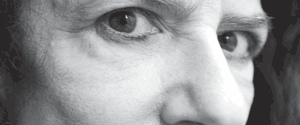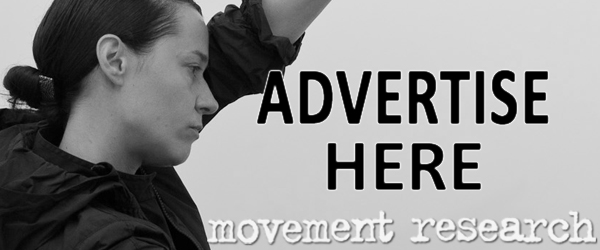Critical Correspondence
- Comments Off on University Project: Notes on DTW Lobby TALKS, Part Three
- University Project
- 4.5.10
University Project: Notes on DTW Lobby TALKS, Part Three
Relevance of the University – Lobby TALKS at DTW organized by Chase Granoff, 2/9/10
Notes by Levi Gonzalez
Moderated by Maura Nguyen Donohue
Panel Participants: Gerald Casel, Maura Nguyen Donohue, Jana Feinman, Susan Marshall, Juliana F. May, David Neumann, Chase Granoff
The second round of talks on the Relevance of the University drew a smaller crowd and was a more narrowly focused conversation, though certainly some of the themes from the first talk resurfaced, and some ideas seem to have developed further with the passage of time. As it was a small group, the assembled audience formed a circle amongst the panelists and contributed occasionally to the discussion. Some in attendance included Andy Horowitz (writer and editor of Culturebot), Andrew Champlin (student at the New School’s Liberal Arts program), Cecilia Faranesi (current Movement Research Intern from Italy), Augustina Camera (visiting from Argentina where she studied Architecture as well as Dance and Theater), Biba Bell (choreographer and performer currently working towards her PhD in Performance Studies at NYU), and Carla Peterson (Artistic Director of DTW).
Chase started things off by asking some questions and thoughts of his own. “How does the University contribute to the decentralization of dance in the US?”
He mentioned that presenting institutions such as DTW, The Kitchen, were all originally founded by artists whereas Universities are more historically an institution without that same grassroots history.
He also discussed the responsibility of presenting institutions to cultivate an audience and that one of the luxuries of the University was that it didn’t have to concern itself quite so much with this.
Many people expressed concern over how the Universities can assist in the survival of the field.
Susan Marshall was thinking about how Universities can help the field directly – through commissioning, audience building, developing a donor base. Also thinking about how experience with dance can serve people in other fields. There is no dance major at Princeton, though she felt many of the students were quite dedicated and talented and some would most likely go on to a career in dance.
Jana Feinman discussed the history of Hunter College, where she is head of the dance department. Hunter has had a dance department since 1972 and is about to start an MFA and MA Program. Jana is interested in how academia and the professional arts community can find ways to support each other.
David Neumann discussed his role as a teacher of Movement for Actors at Sarah Lawrence College. He said he takes advantage of the fact that theater departments often don’t have a clear understanding of dance or movement as a pedagogy and how it frees him to teach more or less whatever he wants.
There is a general consensus that it is hard to feel secure in continued funding for dance departments, and challenging to attain the relatively small resources dance departments need to continue to function. This extends from Ivy-League Princeton to City Colleges such as Hunter. There was discussion about how schools hire well-known “names” in the field to try to draw students, such as Xavier LeRoy at MIT (though this was an interdisciplinary hire and not a dance hire). There is a growing consciousness of looking at the artist as a researcher, using a similar model as the science researcher though the fields and goals of the fields are different. There is some speculation as to whether scientists are starting to see this relationhip more and more as objective academic scientific research is losing much of its funding to corporate-sponsored research.
Someone (sadly the quote is unattributed in my notes) said, “As arts practicioners, we have to start renegotiating the language of what we do. We are researchers. We are relevant.”
David Neumann talked about his relationship with a very progressive scientist named David Lin who sees scientists and artists as inextricably linked and with much to teach other. Lin organizes conferences and events where scientists and artists can interact and share knowledge. His view is that both share a sense of wonder at the natural world but artists have the invaluable skill of communicating that to the world at large.
Also discussed was the Rubin Muesum of Art’s rather broad approach to culture as another model of this idea of artistic practice as knowledge. Andrew Champlin discussed a class offered by The New School and taught by Wally Cardona that dealt with phenomenology. The class used readings from various sources such as Merleau-Ponty as well as engaging in physical practices and studies, such as examining a score which asks “What if the body can perceive time and space as new and original in every moment?” This was an exciting model to the panel of a way in which practice and research and knowledge gathering can be integrated and the practice of movement valued.
In general, though academic institutions can be rigid and challenging in their lack of awareness of what the medium can do, and financial resources are limited, there was a sense of hope in the panel that new partnerships and new strategies seem to be emerging to increase the visibility and reach of movement as a source of transformation in our culture.
Note on Lobby TALKS: Lobby TALKS creates a forum for open and in-depth discourse on contemporary issues in dance and performance. Organized around specific themes, each meeting uses as a starting point one of more of the artistic investigations, methodologies, and motivations that can be seen in performance today. Subjects will be investigated, challenged, and considered by an invited group of artists, critics, theorists, and is opento all who would like to join the conversation.


